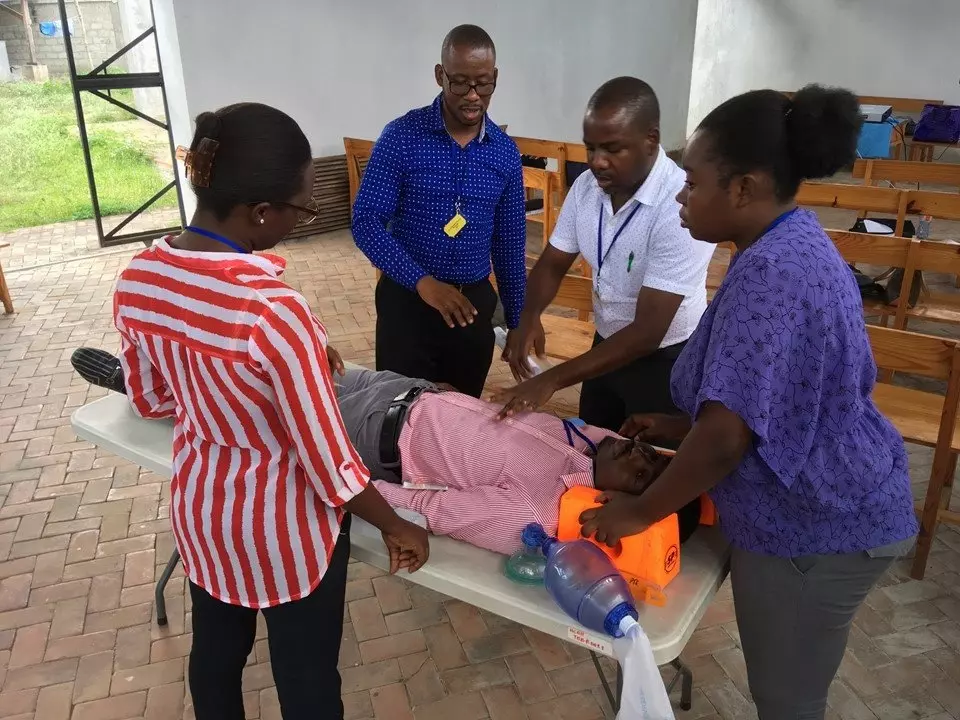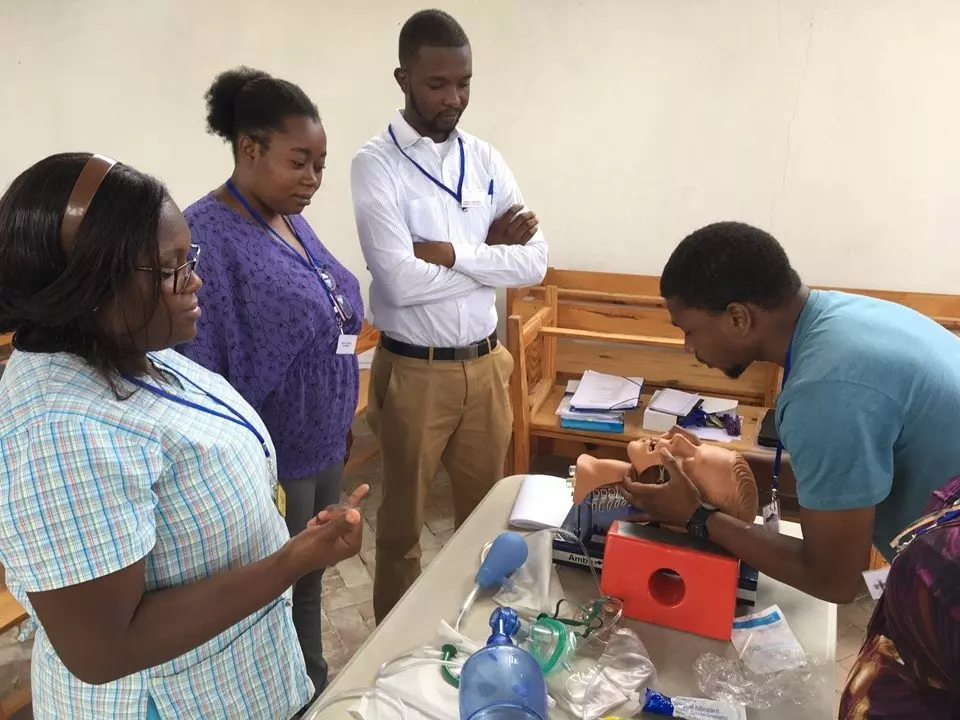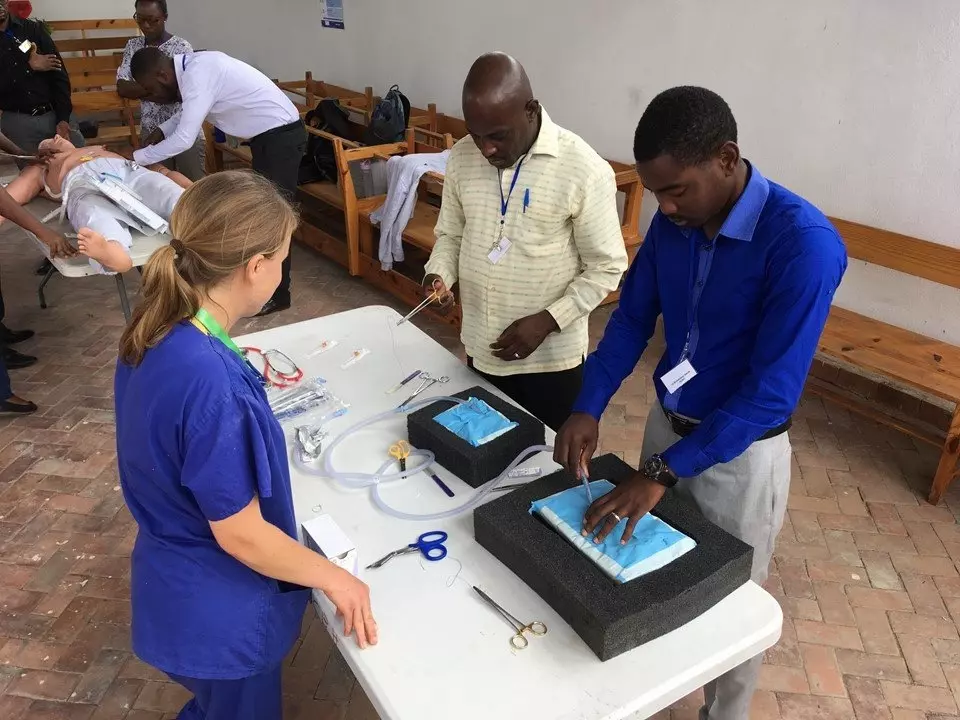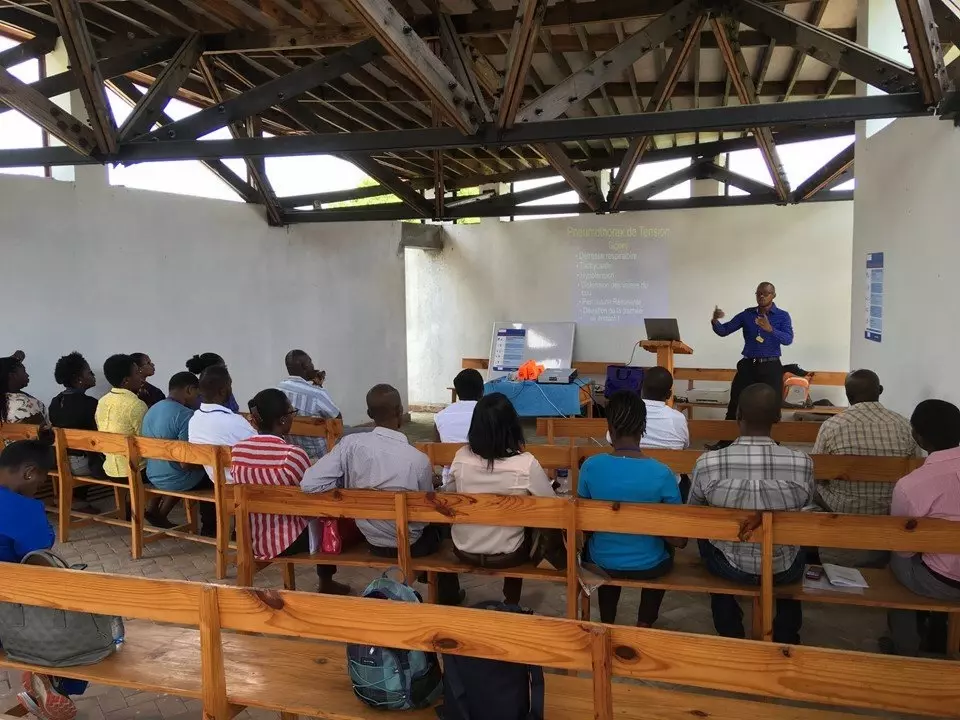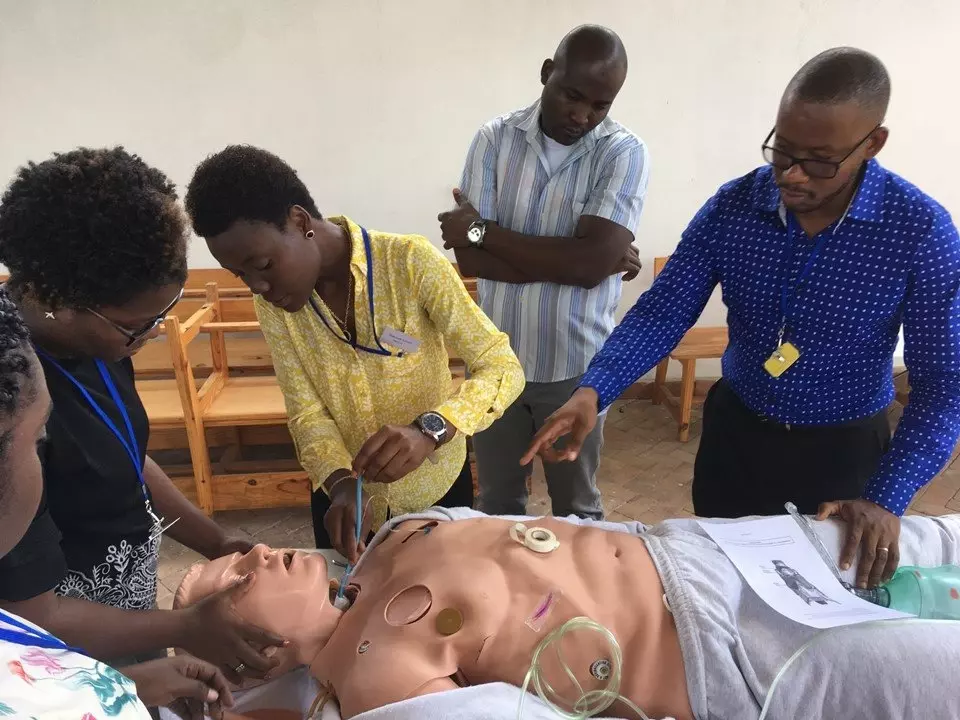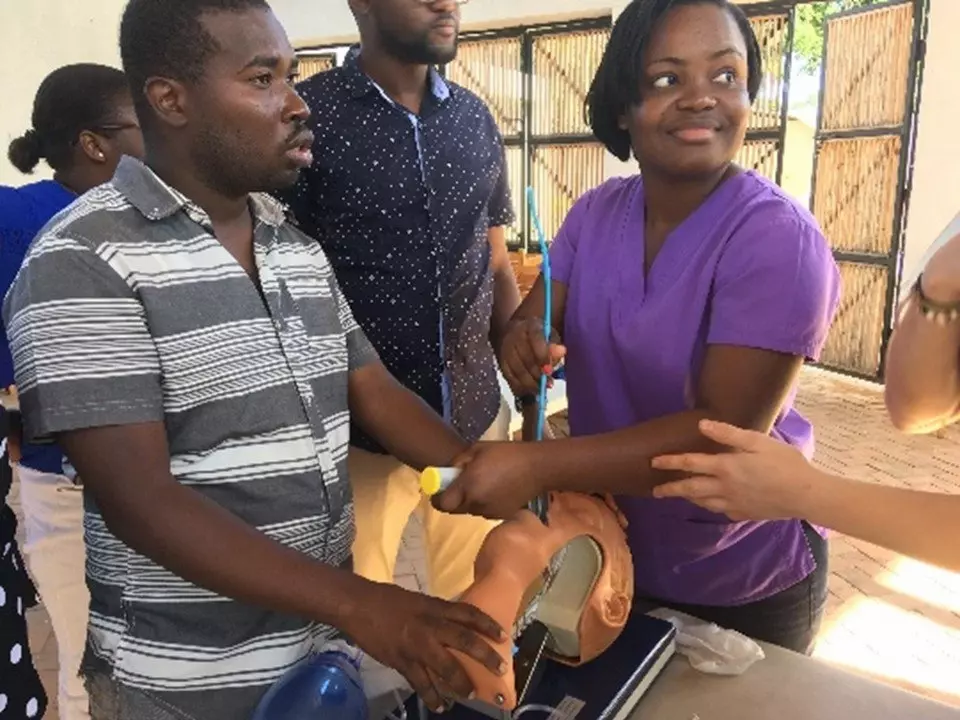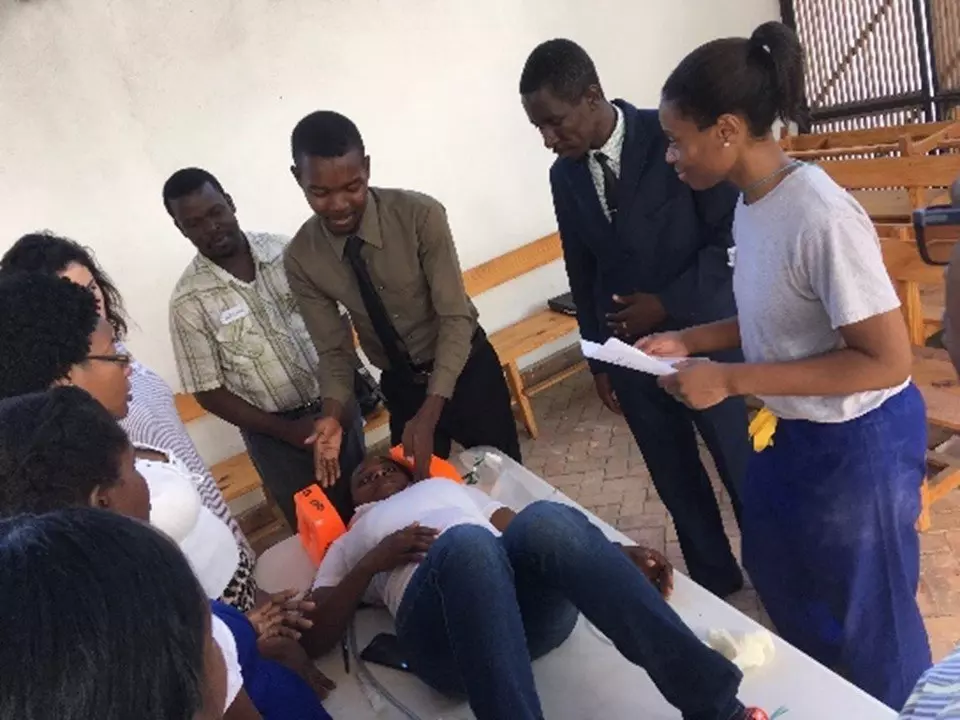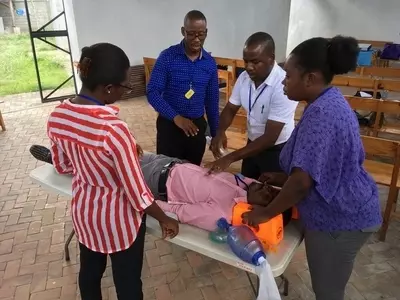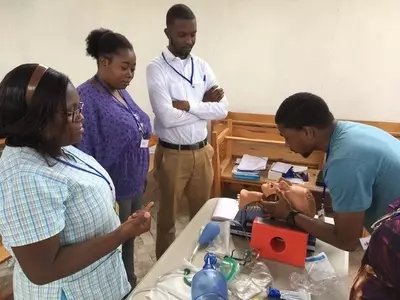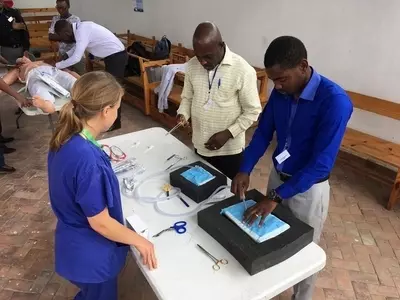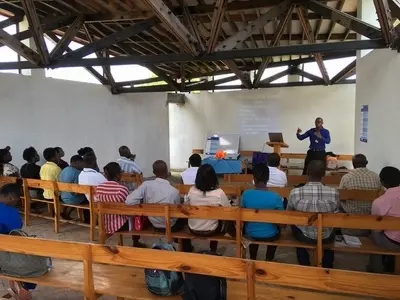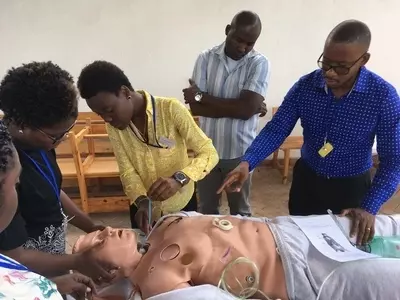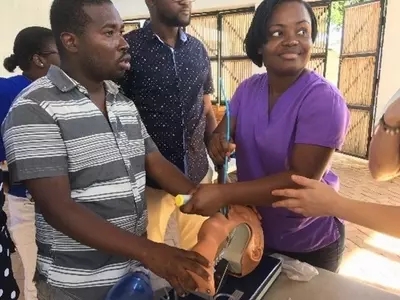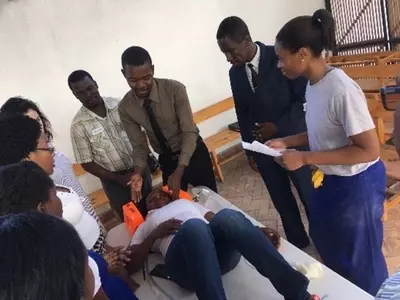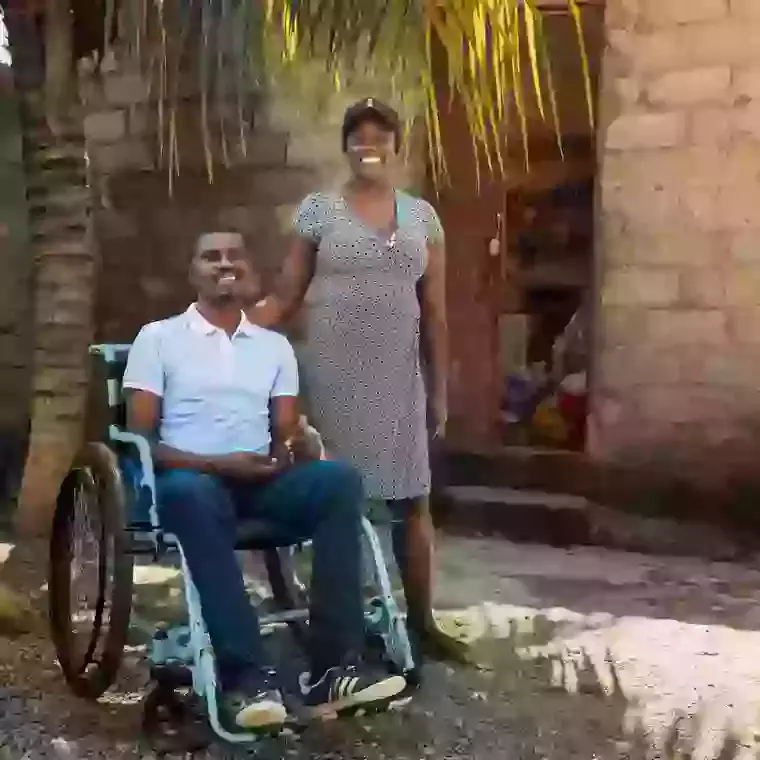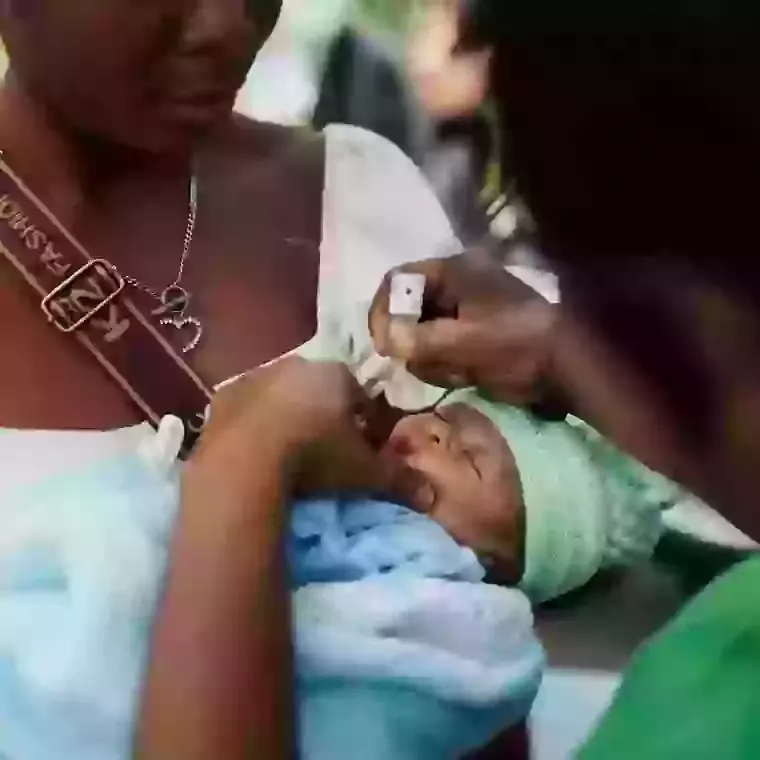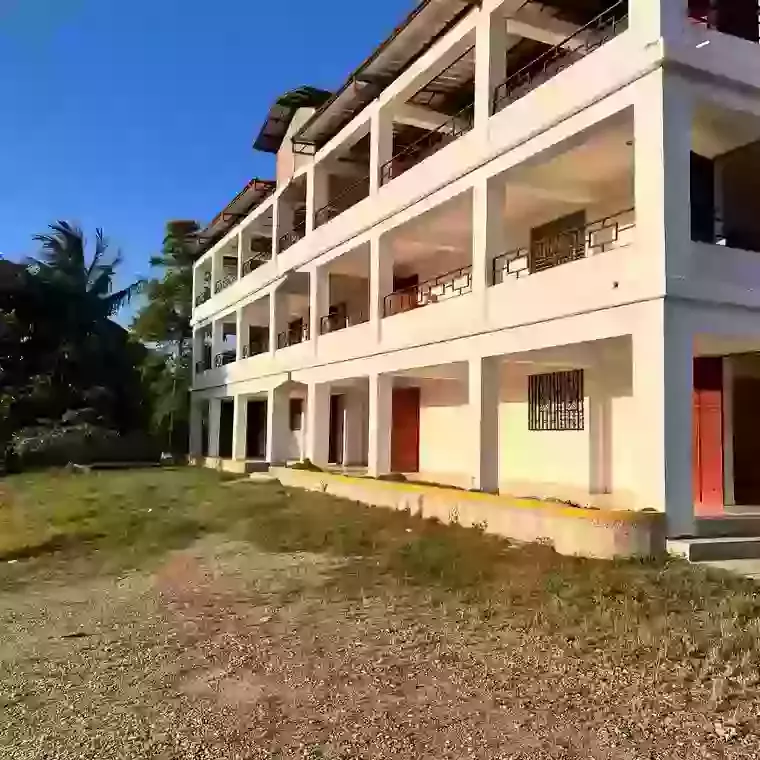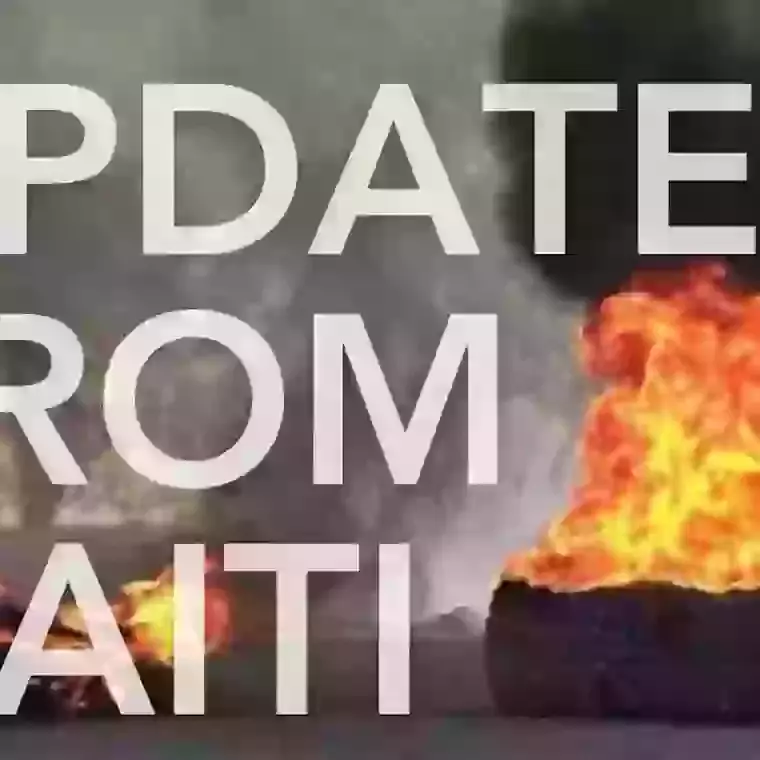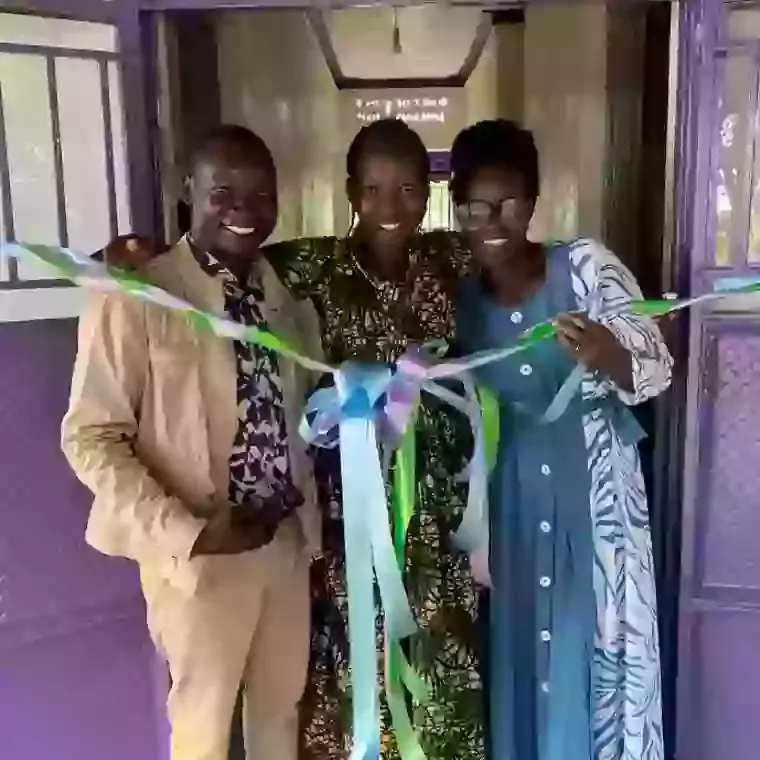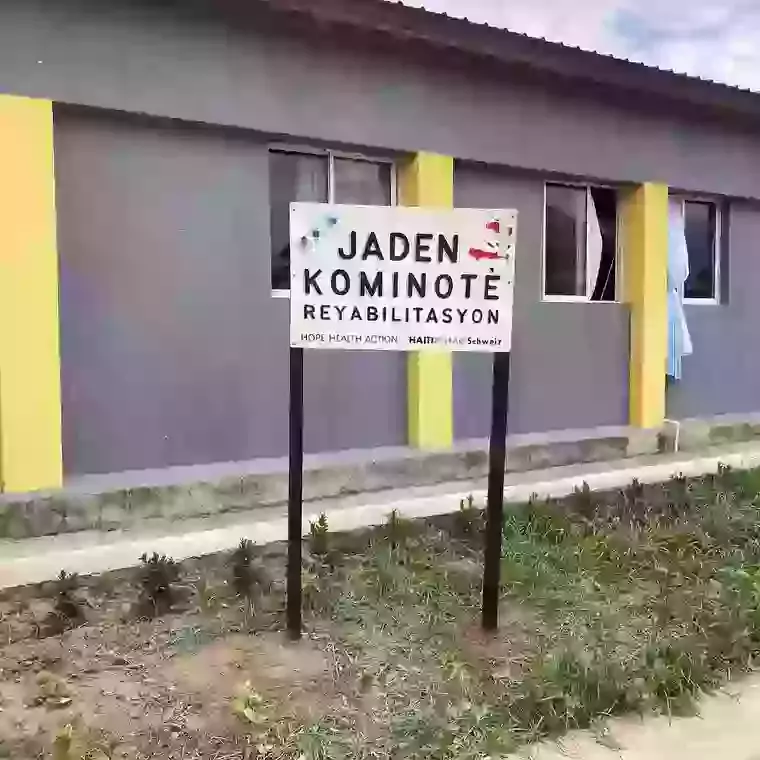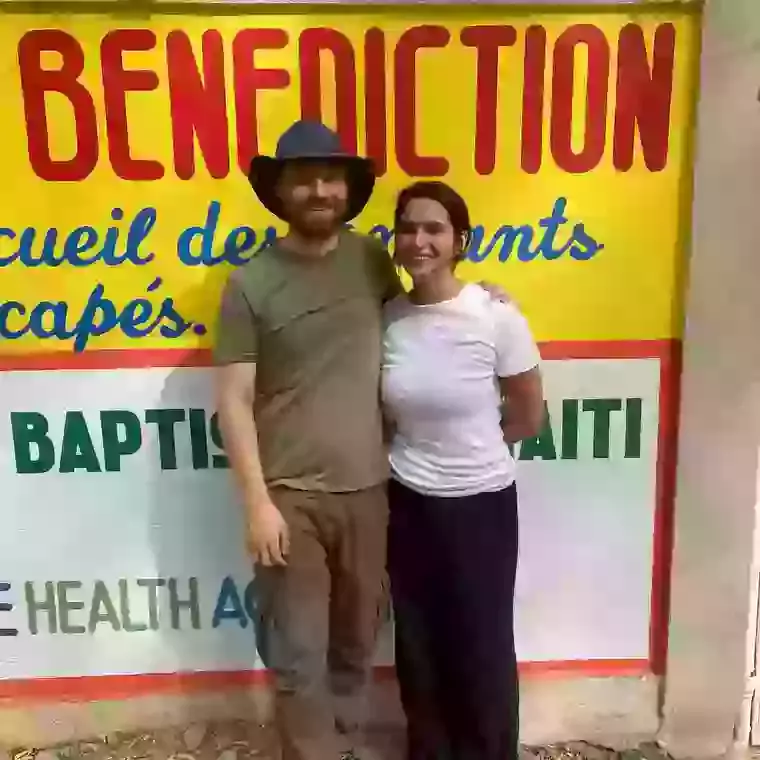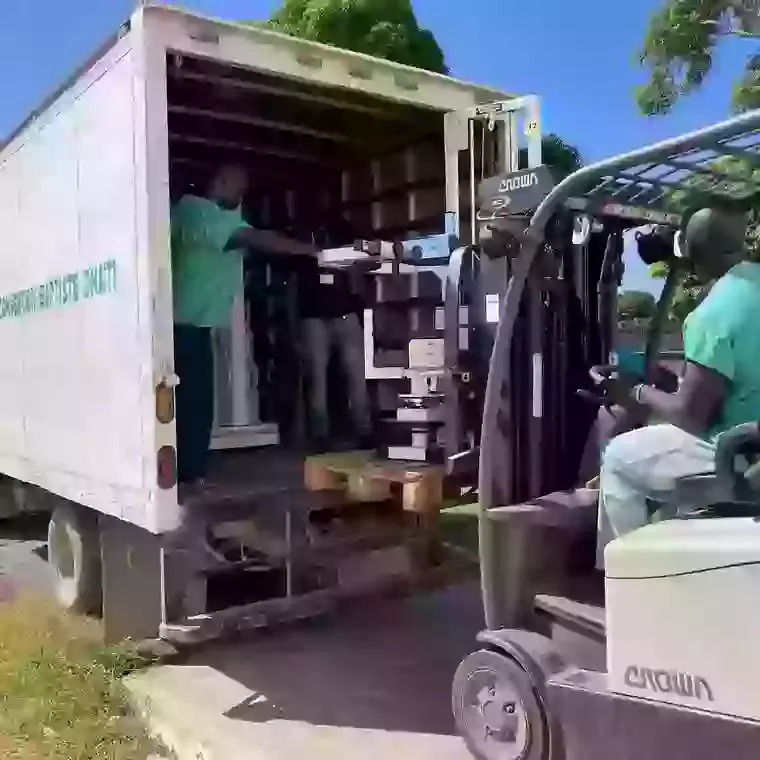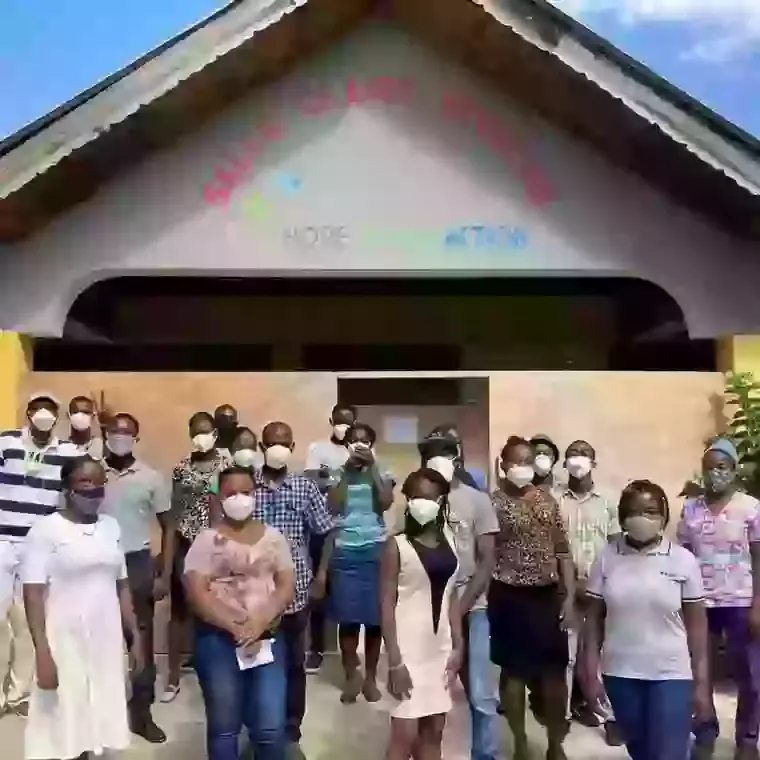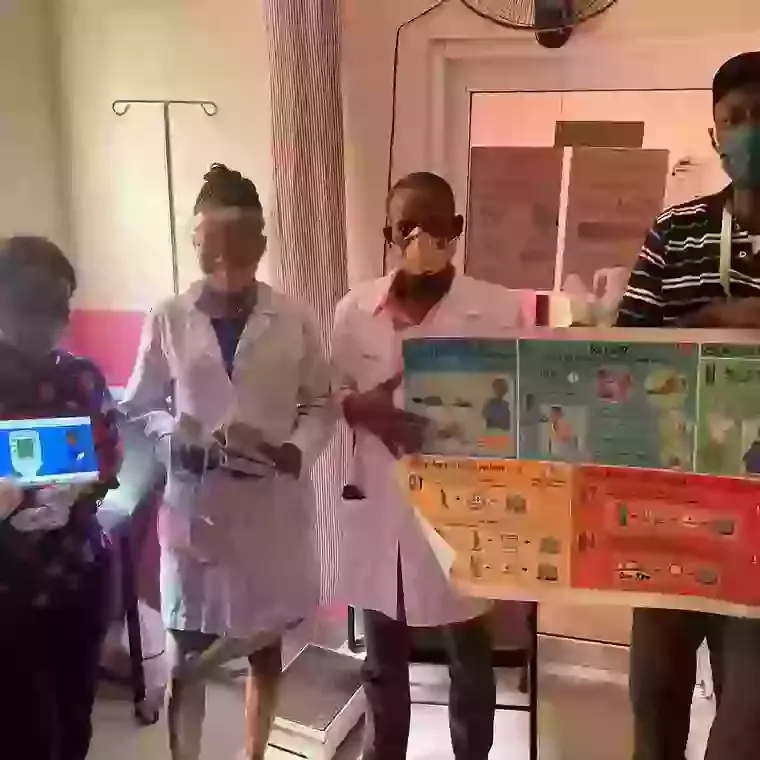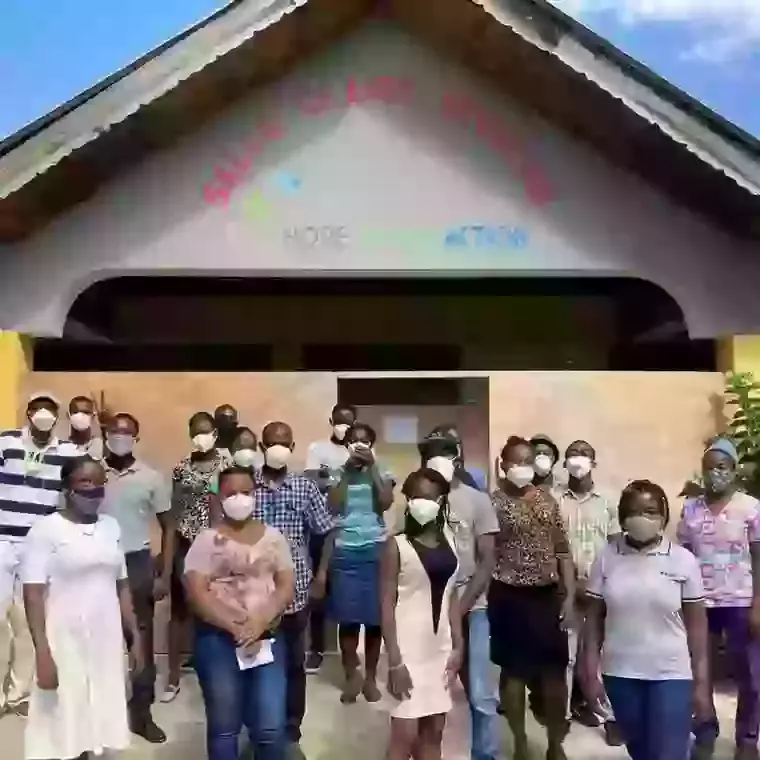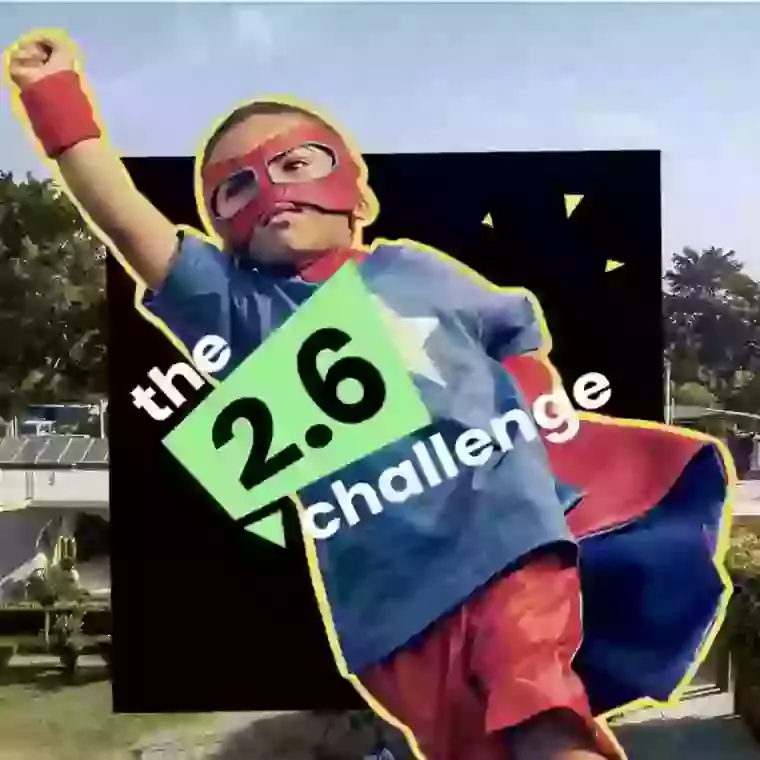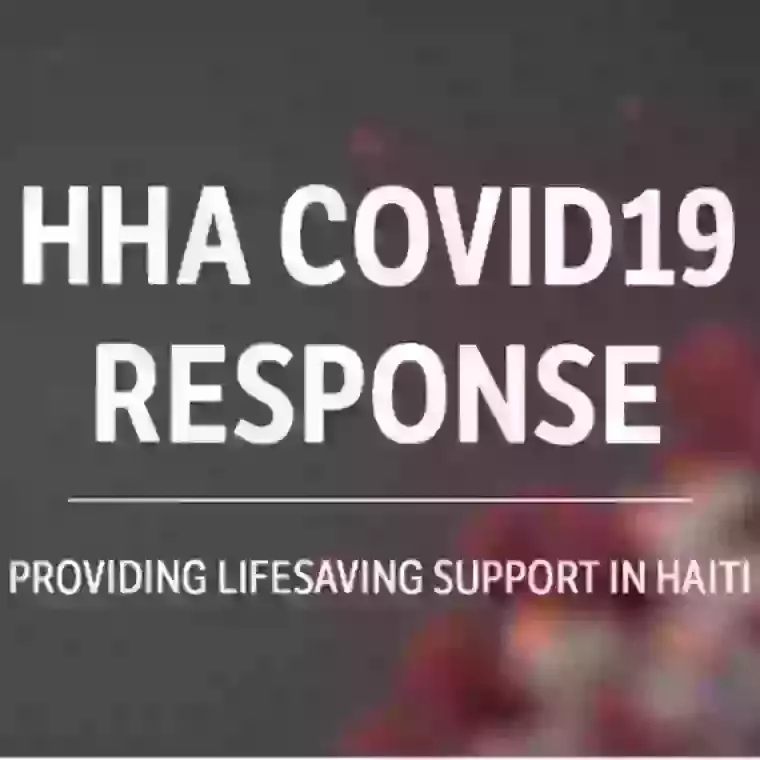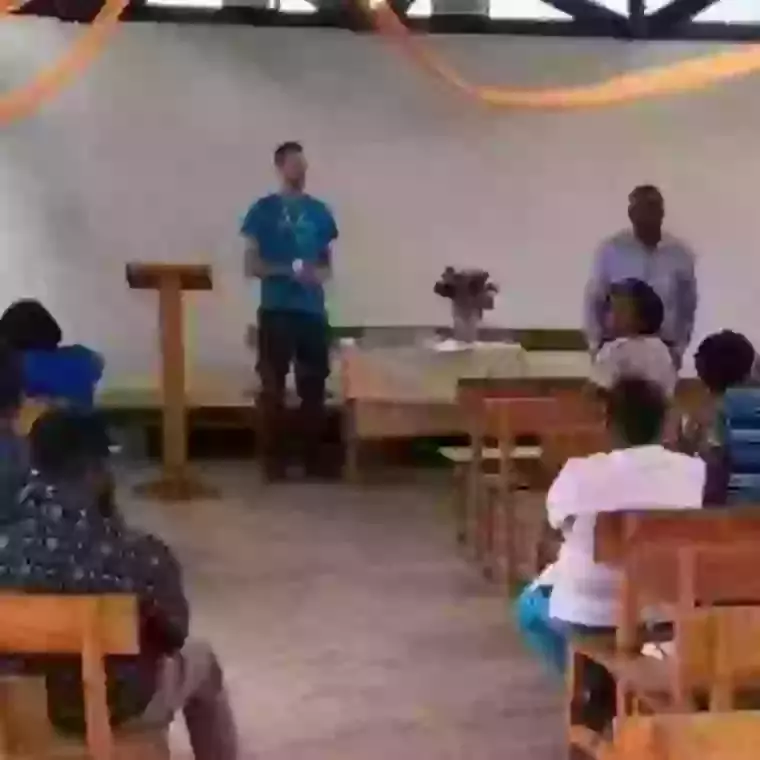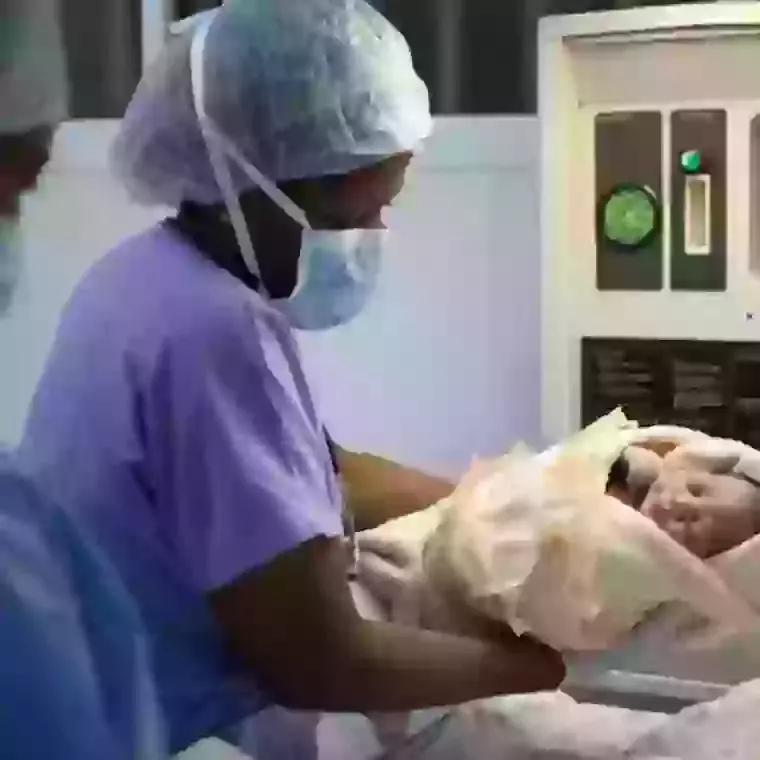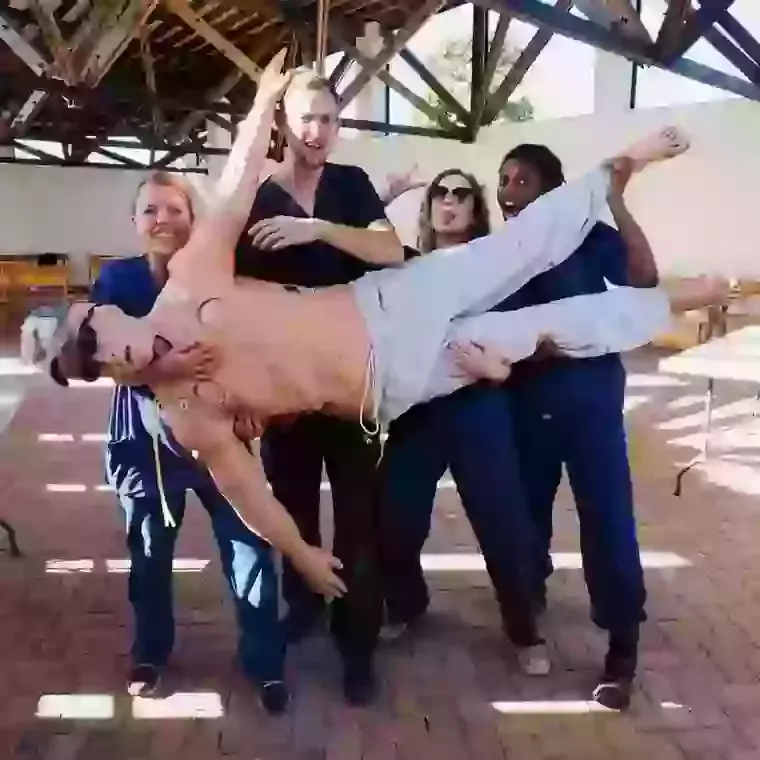The Primary Trauma Care Foundation’s (PTCF) Primary Trauma Course (PTC) is an evidence based, and globally endorsed, system for teaching trauma skills to clinicians in developing world settings
Haiti:
The Primary Trauma Care Foundation exists to save lives and prevent disability in developing countries like Haiti. We used this course to teach front-line health workers how to deliver emergency medical care with only basic equipment. On 12th January 2010, a devastating earthquake ravaged the country of Haiti. It was a disaster on a huge scale, killing 250,000, injuring a further 300,000 and leaving millions without homes. This event sparked HHA’s response to provide emergency treatment for natural disasters and other events requiring emergency response.
This work remains a core part of our mission in Haiti. In 2016, we opened a new Emergency Department in northern Haiti, a 14-bed unit which dealt with 6,416 emergency cases in the last year, a 28% increase from the previous year. We also run an ambulance service that transported 575 patients and opened a new digital radiology department. Our efforts continue to improve these services.
Primary Trauma Course:
In January 2019, Hope Health Action facilitated accredited PTC instructors from the UK to deliver Haiti’s first PTC course in the north of the country. The course is designed in such a way to identify new, potential instructors. Their skills are developed over the 5 days of teaching, to enable them to become newly qualified PTC instructors themselves. Along with a follow-up course in May 2019, there are now 66 new PTC providers and 12 new local instructors.
The course participants were from HCBH, Hôpital Universitaire Justinien (HUJ, local main government hospital), private clinics and three remote hospitals/clinics. These hospitals represent the vast majority of healthcare provision in the city of Cap-Haïtien. Participants were from a variety of clinical backgrounds, the majority being medical doctors or surgeons. Nurses and ambulance staff were also in attendance.
“This trainee-ship was very practical; it will help us save more lives.” Orthopaedic Resident
Project Start Date: 2019
Trauma Course Impact: 66 new PTC Providers and 12 new local instructors
Partners/Donors:


PTC Case Study
The PTC Training provided a unique opportunity for collaboration among diverse faculty and participants. Cooperative learning was extremely high, with 94% of candidates improving over the course. That same percentage of candidates reported an increased overall confidence following the training. The method of identifying local instructors and training them up in a ‘train the trainers’ approach has been extremely effective and enabled greater sustainability.
Summary of MCQ's & Confidence Matrix Scores Pre and Post Course:
We collected data throughout our PTC courses to assess the impact of the training on participants’ knowledge and confidence in managing trauma patients.
MCQ’s:
• 94% of candidates either improved or remained at the same level pre- to post-course.
• 82.35% of candidates improved pre to post course.
• Of those that improved, the average increase in score was 32.8%.
Confidence Matrices:
• 94% of candidates reported increased overall confidence pre to post course.
• Of those that reported increased confidence, the average overall increase was 44.6%.
• Over a third of candidates (37.5%) reported an increase in their confidence of >50%.
Ratings:
• The average overall rating for sessions on Day1 of the course was 87.9%.
• The average overall rating for sessions on Day2 of the course was 84.7%.
• The average overall rating for sessions on both days combined was 86.3%.
• The 3 highest rated individual sessions across the course were ‘ABCDE + primary survey’, ‘Limb Trauma’, and ‘Airway + Breathing’. Two of these three sessions were led by Haitian instructors.


